One reason why there has been so much destruction of Dixian symbols over the past few years is because there is now at least a generation of Dixians who have seen nothing but negative portrayals of our people, be it the butt of a joke or straight up evil. For several decades now, the overwhelming portrayal of Dixians has been negative. Yeah, Gods and Generals isn’t that old, but that was aimed at an older audience; films aimed at younger people are decidedly anti-Dixie, sending the message to young Dixians that to be a Dixian was, at best, a naïve county bumpkin and, at worst, a racist sadist. And, stuff like this does matter.
It is why people walking out of a John Woo movie think Asians are cool and why mafia movies send the message that Italians are cool. It also goes a long way in explaining why I am as sympathetic as I am to what Hunter Wallace calls “Northern American Catholic Nationalism” – think Nick Fuentes and E. Michael Jones types. Sure, I’m Catholic and my studies of the 1960s have shown that the Irish, Poles, and Italians were largely on our side, but a lot of it is because I grew up loving crime movies – stuff like The Public Enemy, The Godfather, Mean Streets, Miller’s Crossing, and so on. All of those films ended up making me sympathetic to these folks. As an aside, this is also why Nick Fuentes has gotten far more mainstream support than anyone on the Alt-Right ever did, normies like Frank Sinatra and Michael Corleone more than Adolph Hitler and Ernst Rohm.
We weren’t always portrayed exclusively in a negative light. Back during the 1970s, a group of films sprang up that made being a Dixian cool. I call these films the “Good Ol’ Boy film.” Typically, these films featured a brave, suave, intelligent, and funny Southern male who is proud of Dixie and traditionally masculine. Most of Burt Reynolds’ films from the 1970s qualify here, as do some more obscure ones like The Black Oak Conspiracy and A Small Town in Texas. Smokey and the Bandit remains one of the best examples of these films – the Bandit is intelligent, brave, confident, and has a real way with the ladies. In other words, he makes for a great film hero. But, that is now gone.
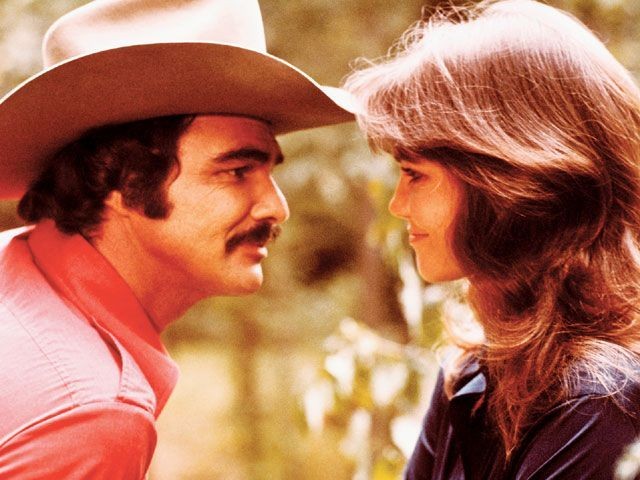
When the Bandit is replaced with Calvin Candie (from Django Unchained) it is no wonder that a generation of Dixian children now are indifferent, or even supportive, of the destruction of Southern culture, especially when they received no pushback from home extoling the values of Dixie and her people. Why the Good Ol’ Boy film eventually went into decline is a long story, it could even be a book. And, while it is true that film trends come and go, I do believe that that the Good Ol’ Boy film could have stayed on for a few more years and past its early 1980s decline. The popularity of The Dukes of Hazzard, itself based on a 1975 film called The Moonrunners, shows that there was still an audience for these kinds of films.
What is important here is that the Good Ol’ Boy film gives us a blueprint in which we can combat the overwhelmingly negative portrayal of Dixie. While it is true that some of these films were made by Hollywood, a lot of them were made outside of the Hollywood system by regional filmmakers who wanted to make their own story. Of course, Hollywood won’t allow a positive depiction of us today. Fix that by making our own. It is true that we don’t have the capital that Hollywood has, but nether did the people who made the Good Ol’ Boy films outside of Hollywood. In fact, we’re in an even better position today because digital filmmaking is cheap. I know it hasn’t aged well, but The Blair Witch Project still remains an example of what can be done on an almost non-existent budget. Use that to our advantage.
Back in the 1970s, even those films made outside of the studio system were able to get a theatrical release, something that would be unlikely today thanks to the corporate domination of movie theaters. But, a film not getting a theatrical release is no longer the kiss of death it once was. I can remember back in the 1990s if a film didn’t get a theatrical release it was almost guaranteed to be a bad film. The only question was if it would be entertaining or just straight unwatchable. Today, that is no longer the case. When we’ve reached the point not even Martin Scorsese, working with Robert DeNiro, Al Pacino, Joe Pesci, and Harvey Keitel can get a theatrical release, then we shouldn’t worry about it all that much. Sure, Netflix is out, they’re way too busy blaspheming Our Lord as a homosexual, but home video is still going. And, in the past few years several films have become popular based solely on a home video release.
This does mean we probably can’t make more explicit Dixian nationalist films, lest we get booted off what platforms we have. Even then, we can, any many do, sell it ourselves. Still, subtilty can go a long way. Part of the reason why there has been such a backlash against “woke” cinema isn’t because vast sections of the population have become dedicated right-wingers. It’s because so much of what makes up woke cinema would rather be woke than good. For example, making your lead character a black, trans-lesbian, genderqueer, fat positive, Muslim Jew likely doesn’t translate into quality filmmaking. Planet of the Apes has a pretty clear anti-religious edge to it, but it is still a good movie because 1) the filmmakers were more interested in making a good movie than making a diatribe against religion and 2) the movie isn’t tripping over itself asking us to congratulate it on being anti-religion. Take a lesson from that.
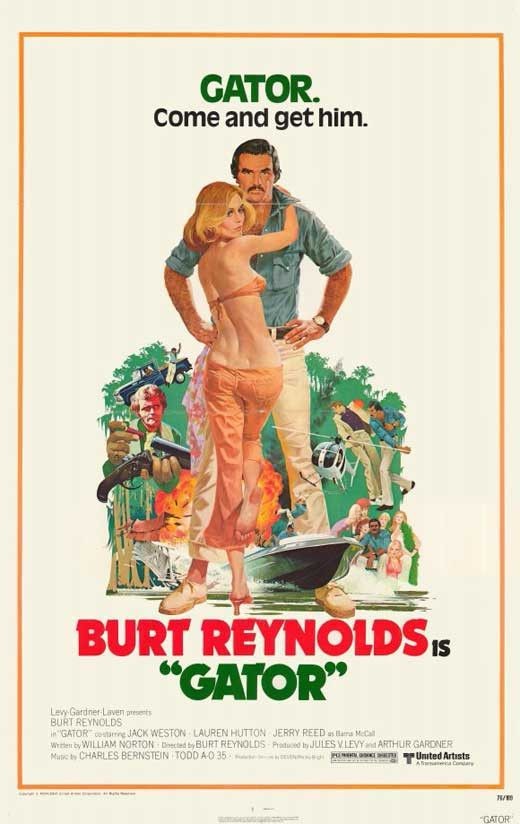
The French New Wave started when a group of French film critics grew bored with the mainstream cinema of their country and decided to make the films they wanted to see. The Spaghetti Western was born when a group of Italians decided that Hollywood wasn’t producing enough Westerns. Closer to our time and home, Sherwood Pictures, based in Albany, Georgia has been able to make a name for itself by offering Christians a more wholesome alternative to Hollywood. Let them be our models.
Not just in film, but in all forms of media, it is absolutely essential that Dixian nationalists create a way for Dixian children to be proud of who they are. It is why Irish nationalist, Padraig Pearse, dedicated his life to the preservation and spread of the native Irish language. He understood national pride must come before national independence. And, as a previous Identity Dixie article pointed out, if the dominant portrayal of Irish were still a bunch of shiftless drunks, no one would want to be Irish.
People want to be Irish because the concept brings up memories of a good night drinking with friends and of bravery fighting a foreign conqueror. If the Italians were still largely seen as violent communist/ anarchist agitators, no one would want to be Italian either. Being a “thief with honor” is entirely different. And, it must also be with us. No one wants to be an idiotic country bumkin. No one wants to be a violent, drunken goon who savagely beats his wife and children.
But, being the Bandit? Yeah, people want to be that.
-By Dixie Anon

O I’m a good old rebel, now that’s just what I am. For this “fair land of freedom” I do not care at all. I’m glad I fit against it, I only wish we’d won, And I don’t want no pardon for anything I done.

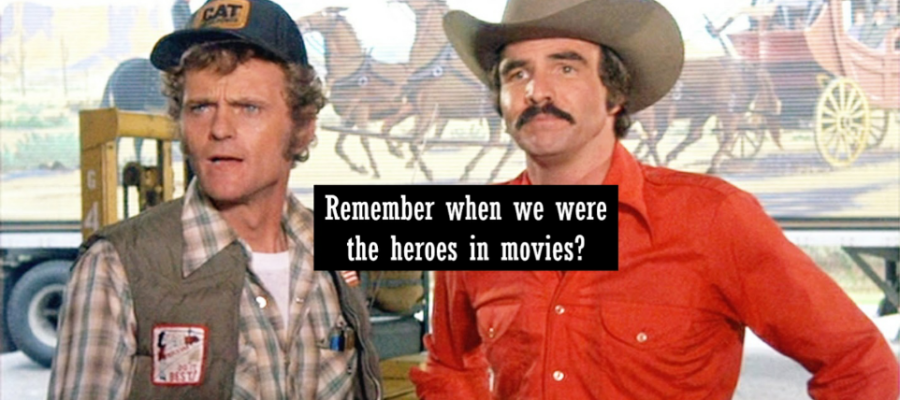
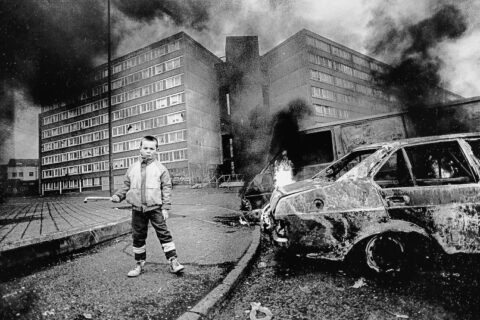


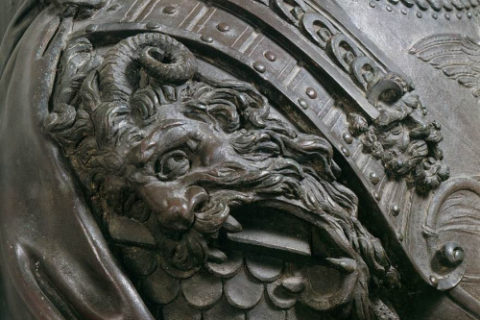
Let’s do this.
Black-Pilled was on with Woes over the holidays where they discussed the uses of making movies for our people. It is a great idea, we should also cast globo homo in the same way they cast white guys on modern sitcoms.
Replace “uses” with idea…
Great article. This sort of thing is important. “Before you seize the palace, you must first seize the culture.”
There are a few movies I’ve seen in recent years that surprised me by being explicitly Southern like “Mud” (https://www.youtube.com/watch?v=wyzpqpXHcSE) and “Logan Lucky.” (The first few minutes of “Logan Lucky” open with a dad working on a truck and talking to his daughter about a song. I couldn’t remember the last time I saw something like that: https://www.youtube.com/watch?v=PoDTKJPTka8 ) They just didn’t get promoted, and I think that’s a big part of it. Making content is critical, but we need to explore ways of ginning up interest. After all, most people over 50 don’t know much about the intricacies of postwar politics but they know who Siskel and Ebert were. And you can imagine how those critics voted. They helped curate the movies that shaped people’s imaginations and that’s Big Medicine.
You mentioned getting around the Hollywood system, and there’s a Canadian named Jared Kelso who has done just that with his show “Letterkenny” in which the “Hicks” are tough protagonists (https://www.youtube.com/watch?v=9rSBmOgpcDE). Kelso was a Canuk whose family had a lumber business for generations, went to LA to become and actor and stayed long enough to say “to hell with this.” He went back home and started a webseries for youtube about his hometown called “Letterkenny Problems” which he and some friends developed into a show that was picked up by Hulu. I think that model might be a way.
There’s also studios like CineState who did “Bone Tomahawk.” They’re based out of Texas and I think they’ve got potential to grow.
Altogether, people are sick of what’s coming out of Hollywood and the time is ripe for other stories. The sky is the limit.
In this age of DSLR’s, mirrorless digital cameras with 4k, 6k and 8k video it’s only a matter of time until independent film makers with dissident ideas begin to compete with leftist value system of modern movies. Unfortunately, the actual hosting of those dissident ideas will never be allowed in theaters anywhere in the USA or Western Europe. Places like Youtube, Netflex or Hulu will continue or expand censorship. However, free speech will always remain in far-away places such as Russia or Mongolia on hosting sites like Ok.ru or Putlockers.mn. Such foreign sites have a profit motive rather than exclusively a far-left political agenda for all messages allowed for public consumption.
A real grass roots approach/solution to distribution would be to employ a volunteer army of Southern nationalists to hand carry “the movie” to small towns and rural communities throughout the South. Such an approach could also take advantage of other forms of propaganda opportunities…
I am all for this. The reasoning behind the need is sound as…(well, I was going to say dollar, but that expression is a joke). I am 100% for the idea and there is no good reason not to, except that actors would be doxxed. But that could be fixed by using cartoons if anyone has that skill. Imagine we had our own version of King of the Hill cartoon series and just subtly dropped our message here and there. And I agree, there is definitely value in subtlety. But there is also value in just going hardcore. Ideally we could do some films going both ways. This is all wide open, and I bet a lot of people out there would be willing to donate or help in some other way.
I have gone a completely different direction in life but when I was in my late teens, before digital cameras or Internet, I used to imagine what a blast it could be to have a bunch of friends to do comedy movies with. I could still see it being a blast tbh but I have no relevant technical skills, and of course there is the problem of revealing your identity on the Internet.
Also, if we go subtle enough, then YouTube is wide open. Of course that is not dependable. All it takes is a complaint, but we could probably get a lot of good miles below their radar.